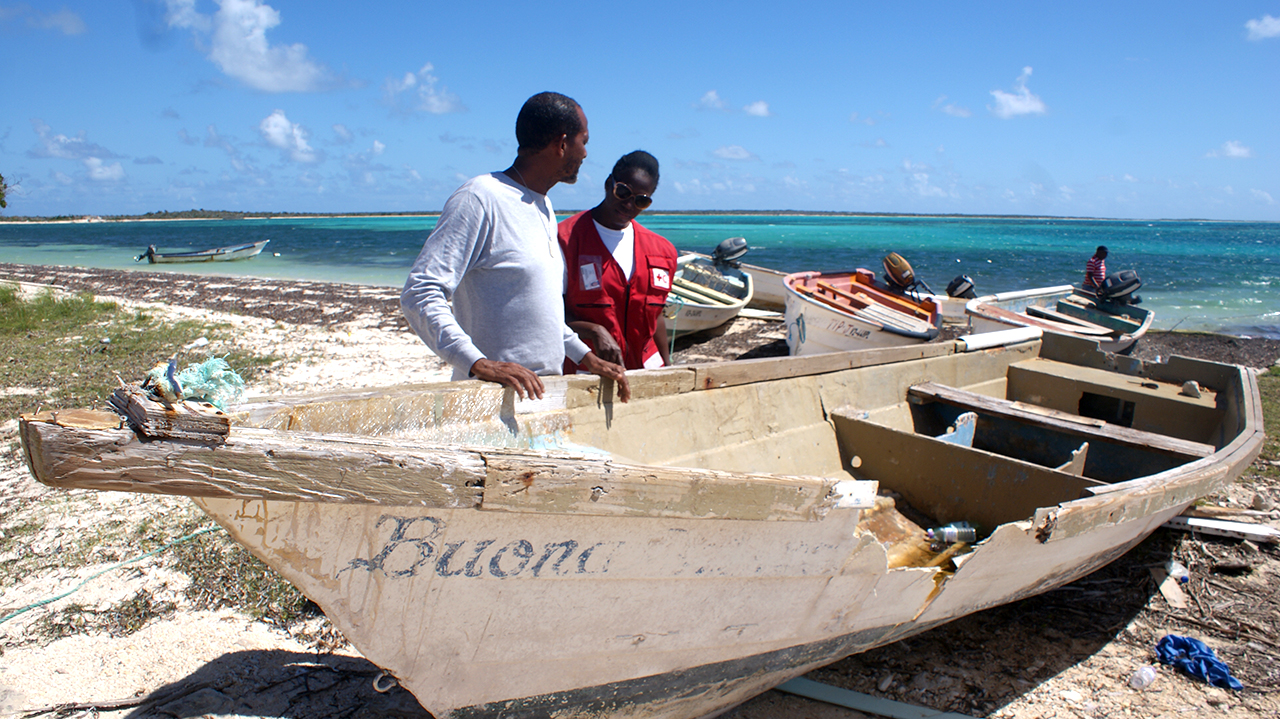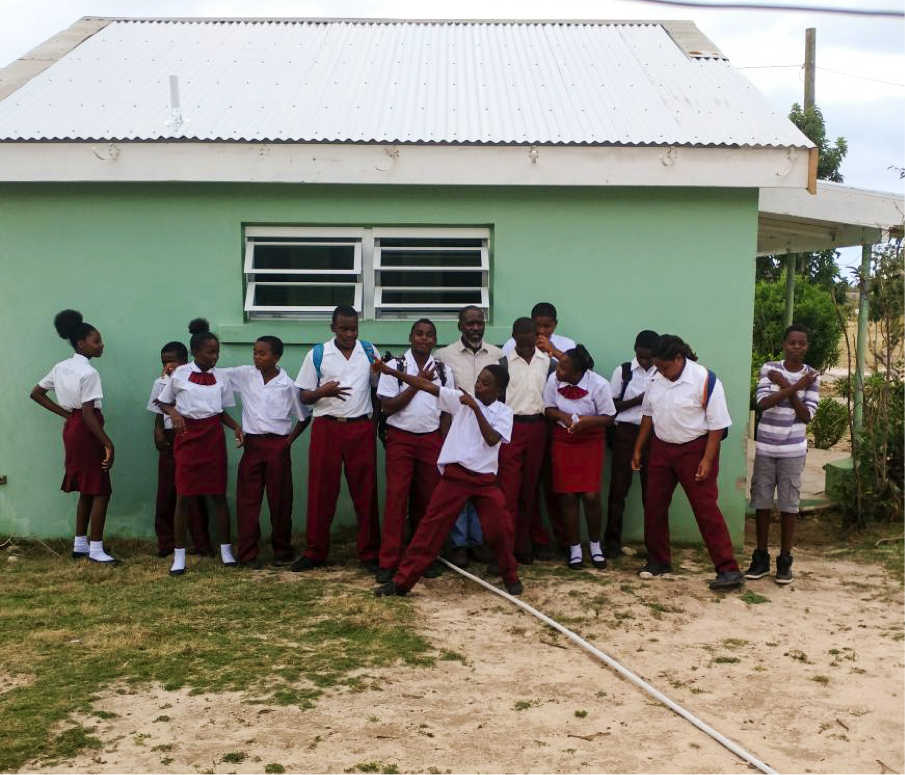

[Photo: International Federation]
The small island of Barbuda certainly has a lot to bounce back from. In September 2017, it took a direct and devastating hit from Irma, a Category 5 hurricane that leveled most of the structures on the island. “It was like somebody dropped a bomb,” Challenger said in a recent interview in Miami, on the sidelines of a meeting of the Energy and Climate Partnership of the Americas (ECPA).
In the immediate aftermath of the hurricane, all of Barbuda’s residents—the population fluctuated between 1,600 and 1,800 people—had to be evacuated to the larger island of Antigua, leaving Barbuda with no permanent resident for the first time in three centuries. (See previous ECPA story, Starting Over: Building Resilience in the Face of Disaster.)
The rebuilding process is underway, but it has not been easy. Challenger, who serves as Adviser to Antigua and Barbuda’s Minister of Energy, estimated that about half of the population has now returned to Barbuda, even though economic activity is still “a fraction” of its pre-Irma level.
“For a lot of the younger people, having come over to Antigua, obviously there are more economic opportunities, there are more educational opportunities” on the larger island, Challenger said. “Some may not go back.”

[Photo: International Federation]
On the other hand, he added, new tourism projects slated to come onstream in the coming months—including an airport under construction—could prove to be a draw. (According to news reports, a boutique hotel called the Barbuda Belle recently reopened for business, and several others are expected to open in December.)
On the energy front, the electricity lines are back up on Barbuda, although the utility is facing some challenges in delivering power at a much lower level of demand, Challenger said. The plan, with assistance from the United Arab Emirates (UAE), is to install a hybrid electricity generation system that runs primarily on solar and battery storage during the day and diesel at night.
With efforts now underway to get residents into permanent housing, a major focus is on building back more resiliently than before. That means enforcing regulations and construction codes that had been on the books before but were not necessarily applied in practice because of Barbuda’s unique history, according to Challenger. He explained that—unlike Antigua—Barbuda has a tradition of communal land ownership, which means that banks cannot mortgage property.
If a bank holds a mortgage, Challenger said, it ensures that certain building standards are met. “If there’s no bank to enforce those standards or to require those standards, people build sort of haphazardly and according to their own situation.” In some cases, a family might build a house piecemeal—a wall this week, some wiring next week—and “standards tend to fall by the wayside when that happens,” Challenger said.
As Barbuda rebuilds, the aim is to ensure that the construction complies with the safety requirements of its sister island. In Antigua, Hurricane Luis was “the game-changer,” Challenger said, noting that after that storm caused extensive damage in 1995, structures were rebuilt to take hurricanes into consideration. That preparedness, however painfully acquired, is now an advantage for Antigua, he added. “In some ways, we’re a little better off than some of the other islands that have not had storms in, say, 30 years.”
Challenger believes Barbuda will eventually rebuild to higher standards, with stronger roofs and sturdier structures—in part due to the “personal experience incentive” of surviving Irma. “The government is obviously going to take a much more active oversight role, and I think even without the government, what those folks went through last year, they don’t want to go through that again,” he said.
 View Map
View Map